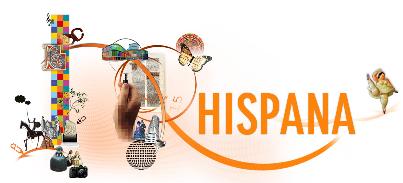Mostrar el registro sencillo del ítem
Levels of Somatic Anxiety, Cognitive Anxiety, and Self-Efficacy in University Athletes from a Spanish Public University and Their Relationship with Basic Psychological Needs
| dc.contributor.author | Mercader Rubio, Isabel María | |
| dc.contributor.author | Gutiérrez Ángel, Nieves | |
| dc.contributor.author | Silva, Sofia | |
| dc.contributor.author | Brito-Costa, Sónia | |
| dc.date.accessioned | 2023-02-09T15:09:57Z | |
| dc.date.available | 2023-02-09T15:09:57Z | |
| dc.date.issued | 2023-01-29 | |
| dc.identifier.issn | 1660-4601 | |
| dc.identifier.uri | http://hdl.handle.net/10835/14229 | |
| dc.description.abstract | Research on self-efficacy, cognitive anxiety and somatic anxiety provides fundamental information to early identify weak areas in the training of athletes and to implement actions that contribute to the improvement and maintenance of sporting activities. The aim of this study was to analyze the relationship between anxiety (somatic anxiety, cognitive anxiety and self-efficacy) and basic psychological needs (competence, autonomy and relationship with others). The sample was composed of 165 university students enrolled in courses related to physical activity and sport sciences, with a mean age of 20.33 years (SD = 3.44), studying in a Spanish public university located in Almeria, in the southeast of Spain (Andalusia). The main findings showed the existence of a continuous and effective relationship between self-efficacy and basic psychological needs. While there was no positive and direct relationship between cognitive anxiety and somatic anxiety and autonomy, there was a direct and positive relationship between cognitive anxiety and somatic anxiety and competence and the relationship with others. Therefore, the results obtained showed that a more positive form of motivation would be autonomous motivation, as it helps to interpret the perception of self-efficacy, favoring performance in competition, whereas controlled motivation has the opposite effect. The importance of this research resides in the fact that it shows that within the sports field, an athlete’s self-perception has an indirect negative effect on pre-competitive somatic anxiety, and the link in this relationship is task orientation and the absence of demotivation towards sport. Despite this, the same effect on cognitive anxiety was not produced. | es_ES |
| dc.language.iso | en | es_ES |
| dc.publisher | MDPI | es_ES |
| dc.rights | Attribution-NonCommercial-NoDerivatives 4.0 Internacional | * |
| dc.rights.uri | http://creativecommons.org/licenses/by-nc-nd/4.0/ | * |
| dc.subject | somatic anxiety | es_ES |
| dc.subject | cognitive anxiety | es_ES |
| dc.subject | self-efficacy | es_ES |
| dc.subject | basic psychological needs | es_ES |
| dc.subject | university students | es_ES |
| dc.title | Levels of Somatic Anxiety, Cognitive Anxiety, and Self-Efficacy in University Athletes from a Spanish Public University and Their Relationship with Basic Psychological Needs | es_ES |
| dc.type | info:eu-repo/semantics/article | es_ES |
| dc.relation.publisherversion | https://www.mdpi.com/1660-4601/20/3/2415 | es_ES |
| dc.rights.accessRights | info:eu-repo/semantics/openAccess | es_ES |
| dc.identifier.doi | 10.3390/ijerph20032415 |










